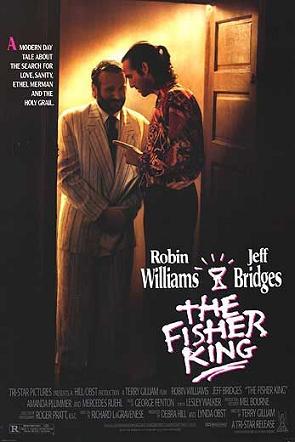I’ve found it hard to process the death of Robin Williams since first hearing about it this afternoon, and I wanted to share a few thoughts on it here. Nothing formal and maybe not even coherent. Just what I’m feeling.
We’ve lost many celebrities that I’ve admired these past few years—Elmore Leonard, Harold Ramis, Lou Reed, just to name a few. I’m a huge fan of Warren Zevon and Hunter S. Thompson, both of whom died within my recent lifetime. But I’m taking this one harder than any of those.
And I think I’ve figured out why. One of my earliest memories as a child was watching Mork & Mindy on TV with my father. It’s one of the first TV shows I can clearly remember watching at night. (One of the others was The Muppet Show, and I took the loss of Jim Henson very hard as well.) As a young child, I didn’t watch much TV at night, most of the shows weren’t exactly aimed at kids, but you didn’t have to get all of the humor to find Mork funny. Williams energy and over-the-top response to every situation was pretty transcendent in its appeal—it spoke to kids and adults.
A couple years later, I remember seeing clips of Williams doing stand up on some TV show or other, and my father pointing out that he was Mork. I also remember seeing Popeye and having it explained to me that Popeye was also Mork. I think it might’ve been the first time I realized that actors existed outside their characters—that he wasn’t actually Mork, but a really funny guy who did other things as well. From that point on, I was a fan, even though I was probably too young at that time to be listening to much of his comedy.
No worries, though, since I eventually grew into it. Good Morning Vietnam, Hook, The Birdcage, Awakenings, Aladdin, Good Will Hunting and The Adventures of Baron Munchausen were all favorites of mine. But there are a few that really stand out. A few that really meant a lot at a key time in my life.
Club Paradise probably isn’t a movie of his that many people would list as a favorite, but I love it. I fell in love with reggae in junior high and seeing Robin Williams and Jimmy Cliff in the same movie—directed by Harold Ramis, no less—was just too cool. Yes, the best lines in it belong to Rick Moranis and Eugene Levy, but Williams’ banter with Peter O’Toole and the other resort guests was priceless.
I’ve actually blogged about The Fisher King here before, but it’s hands down one of my favorites of his. Possibly my very favorite. I think it’s funny and imaginative and wonderful, and also truly poignant. I think it helped me realize the psychological aspect that often accompanies loss. It may seem strange that I learned that from a Terry Gilliam movie, but hey, I was still relatively young and inexperienced with life when I saw it.
And finally, Dead Poets Society. A movie that I’ve seen at least two dozen times and still can’t watch without turning into a sobbing mess at the end. Man, I loved Professor Keating. He spoke to me in a way that no teacher of mine ever had. His lesson about seizing the day is something I try to keep in mind constantly. His comments about poetry and art fed my interests in high school and are a big reason why I do what I do today. Combine Keating’s lesson with some amazing, quotable, unforgettable lines and you have a phenomenal film. It’s shocking that this isn’t the one that earned Williams an Oscar, honestly.
Anyhow, what I’m getting at is that Robin Williams has been a source of entertainment for me throughout literally my entire life, and that’s one of the reasons why this one hits particularly hard. A friend of mine tweeted earlier that she felt like a piece of her childhood had died, and I understand what she means. I’d imagine that for many of us in our later thirties, it does feel like we lost a friend we’ve had since we were kids.
Rest in peace, Robin. I didn’t know you and can’t begin to imagine what you must have been going through in your life. But thank you for bringing some real joy to all of ours.

